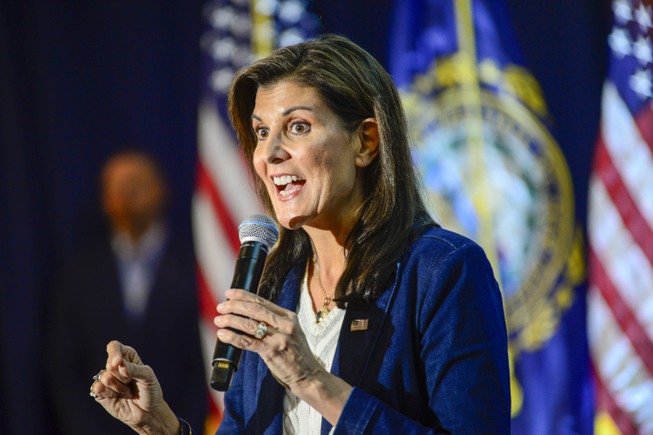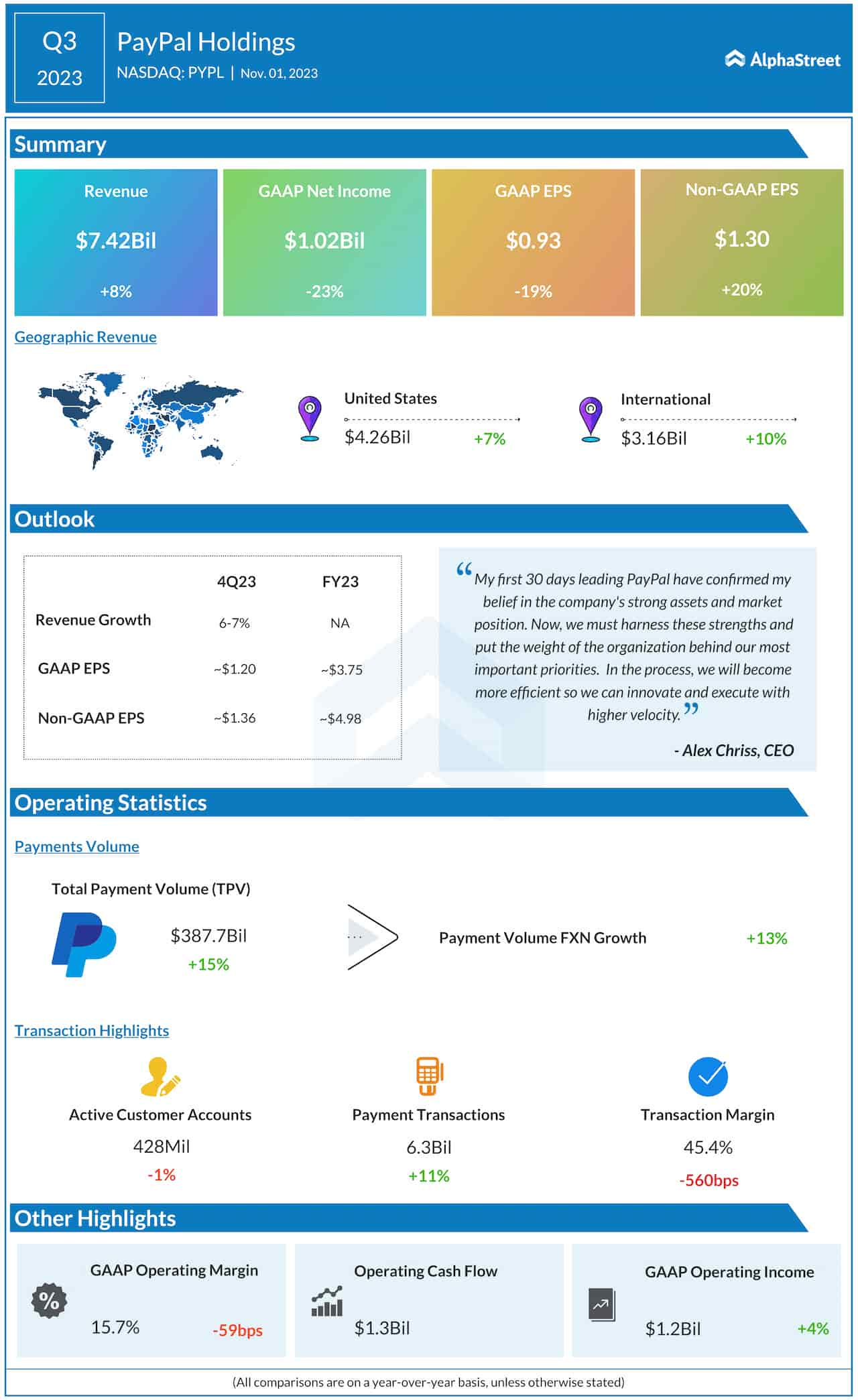
Kristopher Radder / The Brattleboro Reformer via AP
Republican presidential candidate Nikki Haley speaks at a Town Hall event at Tempesta’s, in Keene, N.H., on Wednesday, Dec. 13, 2023.
Friday, Jan. 19, 2024 | 2 a.m.
Though Donald Trump scored a historically large victory, Nikki Haley’s close third in the Iowa caucuses keeps alive her scenario of how the Republican primaries might shift in her favor, starting next week in New Hampshire.
“You know Iowa starts it,” the former South Carolina governor told Granite State supporters Jan. 4. “You know that you correct it. And then my sweet state of South Carolina brings it home.”
That looks like more a hope than a likelihood, given the size of Trump’s Iowa victory and Florida Gov. Ron DeSantis’ second-place finish.
Still, the last three GOP Iowa victors lost in New Hampshire, and recent polls there show that Haley has a fighting chance against the former president in Tuesday’s first-in-the-nation primary.
Crucial to her hopes is the fact that independents can vote in the GOP primary. Recent polling showed large numbers of them planned to do so, mostly for Haley. The overall electorate is less conservative than Iowa’s, and she also has the support of popular GOP Gov. Chris Sununu.
But though she declared herself “the last hope to stop the Biden-Trump nightmare,” her failure to finish second in Iowa weakened that argument.
Haley has a longer-range problem, too: Based on current polls, her “sweet state” of South Carolina is much more likely to “bring it home” for Trump, than for her.
Indeed, the GOP front-runner also has his eye on South Carolina. He already has the backing of the state’s senior senator, Lindsey Graham, and its governor, Henry McMaster.
Haley’s prospects are complicated by the fact that DeSantis remains in the race. But he was weakened by trailing badly in Iowa, where he made an intensive effort and had the support of Gov. Kim Reynolds. And polls show him in single digits in both New Hampshire and South Carolina, strengthening Haley’s claim of a “two-person race” between her and Trump.
Meanwhile, Trump’s Iowa rout confirmed months of polling showing him leading the GOP with about half of the vote. It suggested the $123 million spent by the candidates and supporting organizations had little effect on the outcome, except perhaps in the race for second where Haley nearly overcame an early DeSantis lead.
Trump not only became the first Republican candidate ever to exceed 50% in a contested caucus race, but his margin of nearly 30 points more than doubled the previous high, set by former president George W. Bush in 2000.
Still, the results did contain potential signs of trouble for the former president down the road — in the general election. Despite his massive victory, nearly half of the caucus participants voted for other candidates.
More significant was the GOP vowters’ response to an entrance poll question about whether they would still consider Trump fit to be president if he were convicted in one of several pending criminal trials.
While nearly two of three said he would, more than 30% said he wouldn’t, a potentially lethal falloff in the solid GOP backing he’ll need to regain the White House.
Similarly, 18% of Republicans surveyed in the last pre-caucus Iowa poll said they would be “less likely” to support Trump if he were convicted.
The entrance polls also underscored how conservative the GOP electorate is in a state that Trump narrowly lost in 2016 to Texas Sen. Ted Cruz. More than half of the GOP voters said in the entrance polls that they are evangelicals, and nearly three in five said they favor a national ban on abortion.
By contrast, the New Hampshire GOP electorate is far more moderate. A recent poll by USA Today, the Boston Globe and Suffolk University indicated GOP voters in the Granite State don’t consider abortion a major issue. And conservative Iowa caucus winners have done poorly in recent primaries there.
In 2008, Arkansas Gov. Mike Huckabee finished third in New Hampshire. In 2012, former Pennsylvania Sen. Rick Santorum was fourth. And in 2016, Cruz finished second behind Trump.
The former president is a far stronger candidate than Huckabee, Santorum or Cruz and has led every New Hampshire poll in the past year. In the USA Today-Boston Globe-Suffolk poll, he had a 20-point lead over Haley. But the poll was taken before former New Jersey Gov. Chris Christie dropped out, and his supporters said their main second choice was Haley, potentially cutting Trump’s lead by one-fourth.
Ironically, the Iowa GOP results somewhat resembled the 1984 Democratic race in which the overwhelming front-runner, former Vice President Walter Mondale, won with a 3-to-1 margin over the runner-up, Colorado Sen. Gary Hart.
But Hart was well-organized in New Hampshire, and he managed to defeat Mondale in the primary. However, that was his peak, as the former vice president regained momentum and won the nomination though he lost the general election to President Ronald Reagan.
Haley can only hope a similar scenario unfolds. She flew straight to New Hampshire while Trump stopped first at one of his trials in New York and DeSantis went to South Carolina. Still, her ultimate path to the GOP nomination remains distinctly uphill.
Carl Leubsdorf is the former Washington bureau chief for the Dallas Morning News.














